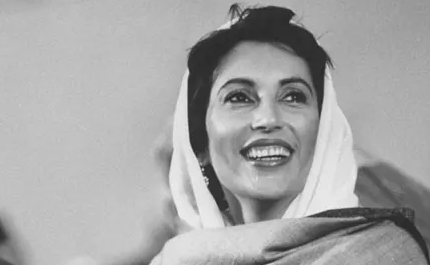CURRENT AFFAIRS UNIT, RADIO KWARA, ILORIN
PROGRAMME: NEWS COMMENTARY
DATE OF BROADCAST: 8/12/88 AT 1810 HOURS
WRITER: LANRE KAWU
When Benzir Bhutto was named as the new Pakistani Prime Minister last week, she became the first woman, to rule a modern Islamic State. Beyond that though, she swept into power, on the crest of a popular wave of general expectation of the Pakistani people, and the goodwill of the international community. Benazir Bhutto’s victory in the Pakistani election, a few weeks earlier, was predictable. It was the final nail, in the coffin of the authoritarian dictatorship of Zia Ul-Haq, which began eleven years ago.
The years of Zia, witnessed major shifts in the political economy and social landscape of Pakistani society. It was also to affect the political equation of the whole region. Zia Ul-haq ruled Pakistan with an iron fist. Like the true fascist that he was, Zia supressed the whole democratic movement of workers, trade unions, students and national minorities. His pro-imperialist economic policies, opened the Pakistani economy to plunder by the trans-national corporations. These policies were also conducive to the consolidation of a crop of local capitalists and rural landowners. It was this class, that was the backbone of his support along with the army.
Regionally, his acquisition of sophisticated American weapons, triggered an arms race with India, while he continually stoked the embers of Sikh separatism in the Punjabi Province of India. Pakistan under Zia, became the base for America’s undeclared war against Afghanistan. The country hosted the various bands waging war against Afghanistan, while Zia exploited the situation to strengthen the American resolve, to maintain his regime.
In the meantime, the more than 100million people of Pakistan, were still carrying the burden of more than 75% illiteracy, a decaying infrastructure, tremendous levels of unemployment, poverty, alienation and a drugs culture. It was the possibility of solving these problems, and the opportunity of turning over the situation in Pakistan, that formed the basis of the mass enthusiasm for Benazir Bhutto and the Pakistan People’s Party.
As the stakes are at the moment, Benazir does not have either a parliamentary majority nor any administrative experience. She is therefore going to have to learn to satisfy the overwhelming yearnings of the Pakistani people for genuine changes in their situation. At the same time, she will be called upon to move in a way that will open democratic possibilities for development in Pakistan, while being mindful of the powers of the reactionary sections of the Zia fostered bourgeoisie and the armed forces.
Benazir Bhutto has made a pledge to develop cordial links with both super powers, while also working for good neighbourly links with India and Afghanistan. Such a step will no doubt, provide the international climate to carry out the urgently needed reforms within Pakistan itself. Will Benazir submit herself to the anti-people, anti-democratic discipline of an IMF economic regime, or will she resist the imposition of further burdens on her people? Only time will tell.
However, there is not much time for procrastination, where the fate of the long-suffering Pakistani people is concerned. Benazir is faced with a lot of challenges. But she also has overwhelming extra-parliamentary and international support to achieve the desired positive results for Pakistan and its people.


